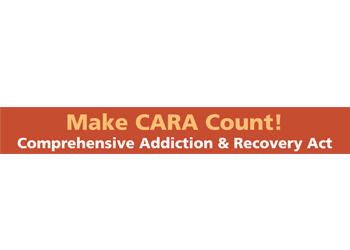Social Media and Recovery Advocacy: The New Frontier
From Faces & Voices of Recovery Blog
by Brooke Feldman
Perhaps more than any other sociological advance we’ve seen over the past decade, the widespread use of social media has had a tremendous impact on the New Addiction Recovery Advocacy Movement. The ability to connect across counties and continents has facilitated the transfer of information and fostered opportunities for networking in ways never before imagined. The ability to virtually mobilize and organize the recovery communities online has magnificently spilled out into the physical world at recovery meetings, social events, advocacy days, conferences and massive rallies such as last year’s Unite to Face Addiction event in Washington, DC. In addition to these powerful benefits, the ability to put a face and voice on recovery has never before been more real as hundreds of thousands of people each day publicly disclose being a person in long-term recovery for the larger world to see on their Facebook, Instagram and Twitter accounts. This public disclosure of recovery status has moved our movement giant steps away from mostly preaching to the choir and out into a place of serving as beacons of hope and sources of inspiration for the greater world to see. All told, the widespread use of social media has certainly advanced the New Addiction Recovery Advocacy Movement, yet as with all advances, the widespread use of social media has also brought new challenges for us to grapple with. This blog is the first of a series that will explore some of the challenges of social media and recovery advocacy that our community must discuss, struggle with and get to the other side of.
Language
With so many styles and varieties of recovery experiences that are embedded in individual and cultural contexts, coming to a place of one universal, non-stigmatizing and all-encompassing set of words and messaging is no easy task and remains one that our movement still struggles to unite around, spread and sustain. With social media providing a very public forum for self-disclosure and conversations around addiction and recovery, we see at least just as much use of less favorable language as we see individuals using the research-backed Faces and Voices of Recovery messaging. In order to continue moving forward with promoting non-stigmatizing language that will transform minds and hearts, our movement will have to acknowledge all of the factors at play in the variability of language, the real benefits of that variability, the potentially harmful limitations and challenges of that variability and ultimately new strategies for moving language forward.
Pictures
The notion that a picture is worth a thousand words is one that the advance of social media has brought square into the forefront. As we see unsavory and stigmatizing images used by the media for stories about addiction and recovery, how will the recovery advocacy community unite to demand better from the press? As we see an abundance of videos posted that demonize victims of an overdose, how will the recovery advocacy community unite to demand an end to public shaming that only leads to more discrimination, stigma and lack of awareness about the reality of recovery? As we see countless memes using stigmatizing language or poking fun at addiction and recovery, how will the recovery advocacy movement unite to counteract these images with memes that instead use strengths-based language that promotes the universal value and reality of recovery?
The challenges surrounding the language and pictures used on social media are just two of a number of areas we must address as we continue forward movement in the new frontier of social media and recovery advocacy.
Stay tuned for my next blog on this subject which will explore the personal and collective responsibility that comes with advocacy on social media…
 BROOKE FELDMAN, Faces & Voices of Recovery Recovery Blog Manager
BROOKE FELDMAN, Faces & Voices of Recovery Recovery Blog Manager
Brooke openly identifies as a person in long-term recovery from a substance use disorder. While recovery means many different things to many different people, what this means for Brooke is that for over 11 years, overcoming problem alcohol and other drug use has enabled her to stop the intergenerational transmission of addiction that claimed her mother’s life at a young age. Furthermore, recovery has enabled Brooke to combine her own lived experience with professional and educational experience to live a life of service dedicated to supporting others around initiating and sustaining recovery. Brooke firmly believes that long-term recovery is possible for all individuals and their families, so long as they have access to the resources and supports they need. Much of Brooke’s professional, volunteer and writing efforts go toward ensuring that those resources and supports are more readily available when, how and where they are needed.




